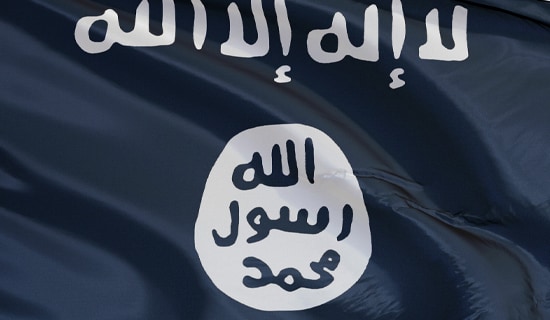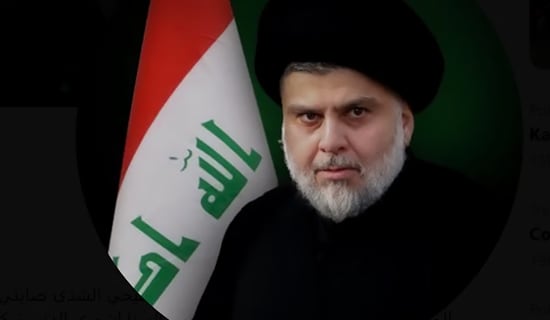The following report is a complimentary offering from MEMRI's Jihad and Terrorism Threat Monitor (JTTM). For JTTM subscription information, click here.
Following the deadly March 18, 2015 attack at the Bardo National Museum in Tunisia, in which 17 tourists and two Tunisians were killed, the Ifriqiyya media company, which is associated with jihad organizations in North Africa, released an article titled "Just Another Day – Commentary on the Blessed Attack on Bardo Museum." The article states that the gunmen who carried out the attack, Yassine Laabidi and Hatem Khachnaoui, focused on killing infidels and "apostate" policemen and soldiers, and urges Muslims to carry out similar attacks, especially against tourists, with emphasis on French, British, American and Israeli nationals. It also suggests ways to kill tourists, suggesting to "drown them in the ocean, poison their food, bash their skulls with a rock, or suffocate them with pillows in their [hotel] rooms." It lists what is calls the great achievements of the attack, including the harm to Tunisia's tourism industry and economy, and threatens that additional attacks will be carried out soon, on unexpected targets throughout the country.
The following are excerpts from the article, which was posted on the jihadi forum Shumoukh Al-Islam:[i]
.jpg)
"The article begins with a storybook-like description of the shooters on their way to the target site: "One ordinary sunny day with nice, clear weather, the two left their homes, boarded the metro, got off at a station where they changed to another [line], and then exited the metro. They passed the Bardo police station and the headquarters of the tyrannical military intelligence [apparatus]. Leaving the bags containing their guns at a bus stop, they entered [the museum] to check it out. They went back for their bags and [again] infiltrated [the area of] the apostate parliament and the museum. One of them took out the weapons and the grenades, while the other did a short preparatory tour... The policemen and presidential guards noticed that they were armed but were so amazed they froze on the spot. 'How did you enter so easily,' they asked in astonishment, and the two answered: 'We come in the name of Allah.' Then they began throwing grenades, crying 'Allah Akbar, and shooting at infidels and at the policemen that guarded them, and the massacre began."
The article adds that the shooters originally intended to continue from the museum to the nearby parliament building, but changed their minds when they encountered heavy gunfire, because they did not want to be killed before killing as many infidels as possible. So instead they shot some infidels who had gathered at the bus stop, and then went back into the museum and took some more infidels hostage. According to the article, they released some children and Muslim museum employees, not wanting to shed innocent blood.
After a long while, says the article, when the "counter-Islam" (i.e., counterterrorism) unit arrived and stormed the site, the gunmen shot the hostages and then fought back. Eventually they achieved their goal of attaining martyrdom, having delivered a harsh blow to the apostates [the Tunisian government] and their masters [the West], and having fulfilled what is said in the Koran (9:14): "Fight against them so that Allah will punish them by your hands and disgrace them and give you victory over them and heal the breasts of a believing people."
The article lists what it regards as the achievements of the operation, as follows:
1. The killing and wounding of dozens of infidels and Tunisian security personnel.
2. The operation exposed the ease of infiltrating sensitive sites.
3. The operation proved that using simple means and minimal planning, it is possible to deliver harsh blows to the regime and carry out deadly attacks even in secured and fortified locations. According to the article, the perpetrators only carried two AK-47 rifles and four grenades, and did not use explosive belts.
4. The regime's lies were exposed, such as its claim that the perpetrators had killed a Muslim woman who worked at the museum.
5. The operation exposed the true face of "hypocrite" clerics who presume to be Salafis, and of politicians, journalists, and even Muslim Brotherhood members who were quick to condemn the attack.
6. The Tunisian stock market crashed following the attack: "The stock market collapsed as the result of the actions of only two individuals. What would have happened if it were a coordinated and simultaneous attack on several sensitive military and tourist locations?"
7. Tourism, which is an import source of revenue for the Tunisian economy, was badly damaged.
8. Many Tunisians were exposed as apostates when they sent condolences to the Western countries for their citizens who were killed.
9. The attack caused the countries of "Tunisia's masters" (i.e. Western countries) to issue travel warnings for Tunisia. Additionally, it revealed "that Tunisia's new rulers are agents of the French, and that Tunisia is still a French colony. Less than an hour after the operation commenced, the French prime minister issued a warning, a threat, and a condemnation, even before speaking to his tyrant Tunisian agents – the president and prime minister."
10. The attack damaged the morale of Tunisian government and security personnel.
The article calls on Muslims to express their joy quietly, while promising them that in the future they will rejoice openly in streets and city squares. The article also addresses all Muslims, asking them to take an example from the operation and kill non-Muslim infidels as well as apostates who have abandoned Islam. Citing the Koran and Islamic law on the permissibility of killing infidels, it urges Muslims to kill tourists in Tunisia: "If you are afraid to kill an apostate soldier or policeman or tyrant ruler despite Allah's orders, then you must kill infidels, who are called tourists. The blood and money of an infidel is permitted... Hunt them down everywhere, especially the French, American, British, and Israeli ones. Run them over with cars after changing your license plates and hiding your faces. Lure them on the roads, in dance clubs, and in bars. Then slaughter them on the beach or drown them in the ocean, poison their food, bash their skulls with a rock, or suffocate them with pillows in their rooms." The article advises the attackers to change their appearance before carrying out the attack, avoid using cameras or phones or leaving fingerprints, and steal the tourists' money and possessions before making their escape. It also advises them to later discard the clothes they wore during the act.
The article threatens Tunisian authorities and promises more attacks in the future: "You can promise, threaten, and do whatever you want. Muslims have grown used to prisons, torture and arrests. These have become enjoyable for them, since they brings them closer to their creator. But you do not know of the active fighting cells and do not recognize them. Expect further [attacks] in unexpected places."
Addressing the fact that no organization has claimed responsibility for the attack, the article adds: "Regarding the claim of responsibility for the operation and the affiliation of the two dead [attackers], we say that, for the meantime, we want to listen to your funny analyses, hear your crying and moaning on the TV and radio, and laugh at the helplessness of your apostate masters [the Tunisian security apparatuses]. We informed them of every operation several hours in advance, and despite this, their helplessness is clear to all. We hinted at the type of target, and despite this, their helplessness is clear to all. What more do they want? The GPS coordinates??"
The article concludes by addressing "the hypocrite journalists and politicians" and advising them to flee Tunisia. It also warns the regime's spies and agents and threatens that jihadis will kill them if they continue their activities.





